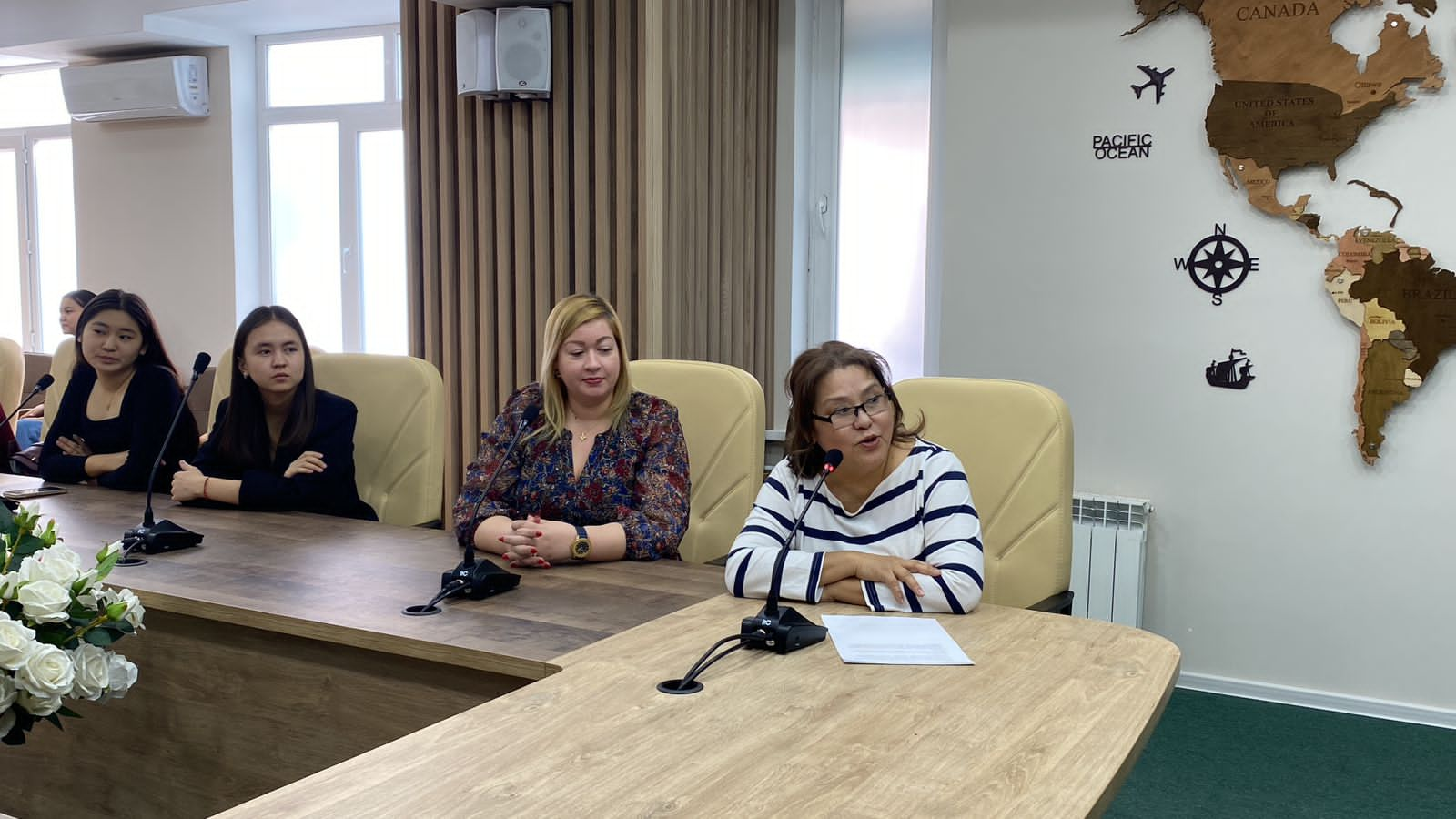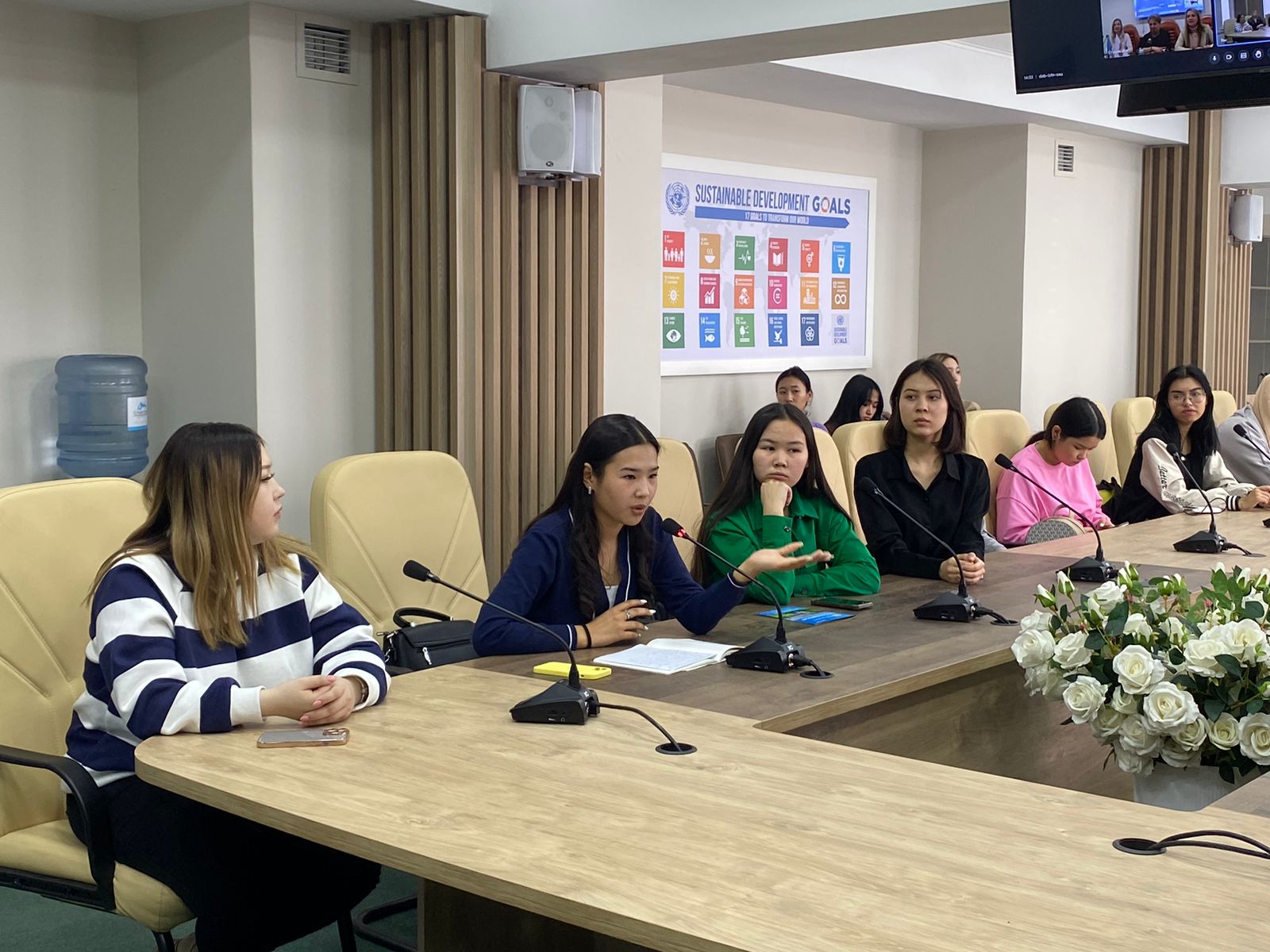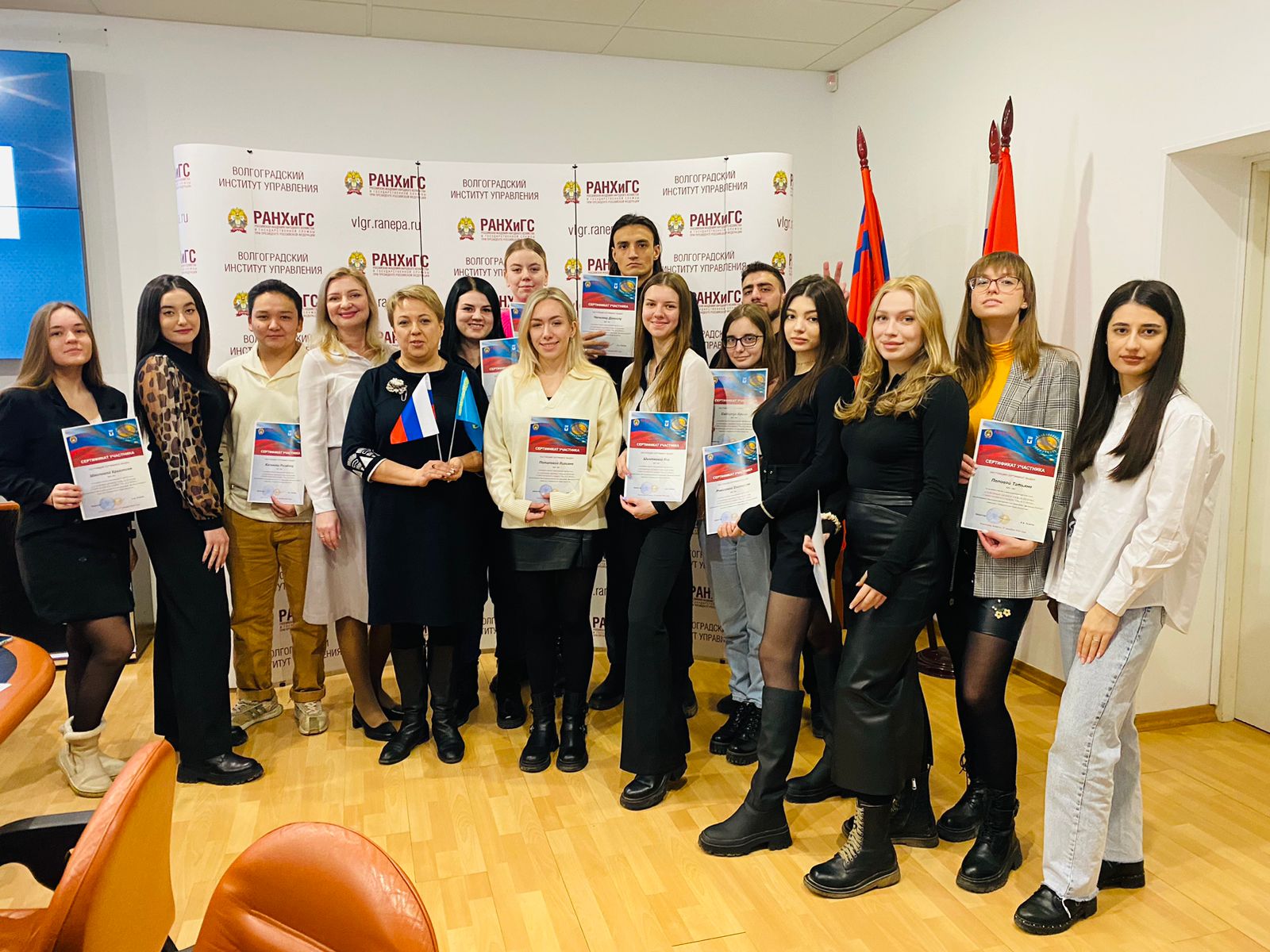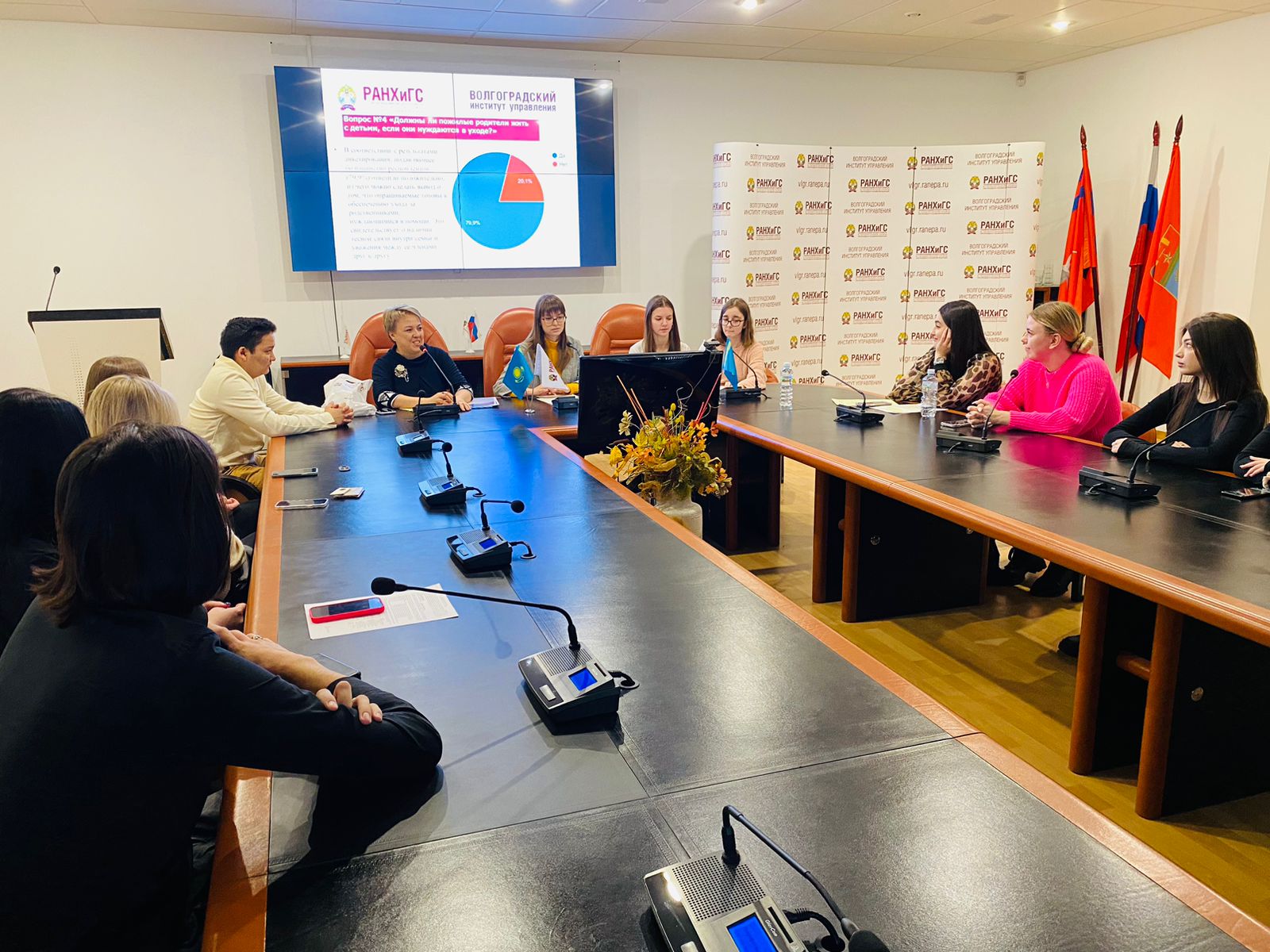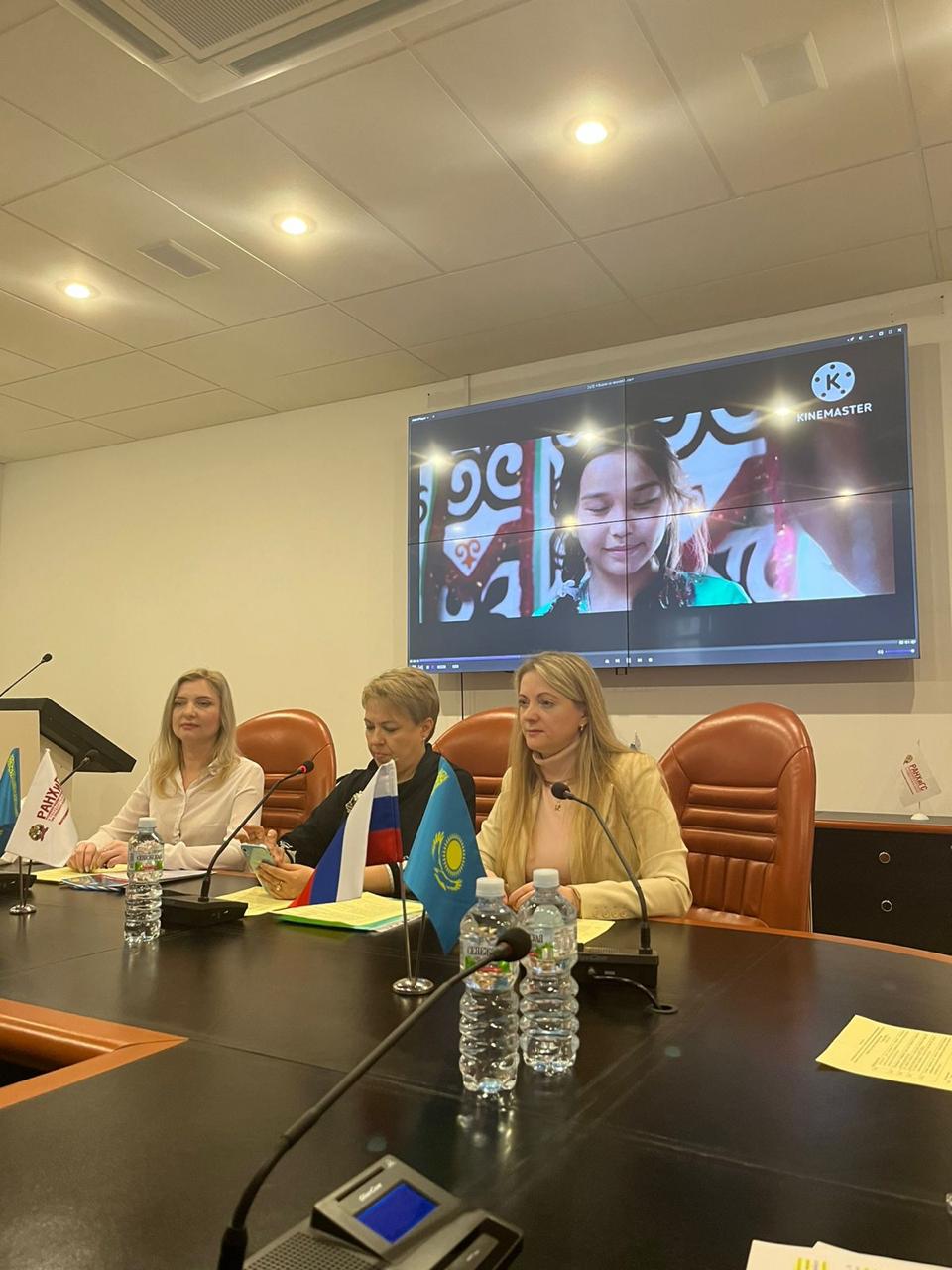“Round table” united the family values of Russia and Kazakhstan
The fourth international round table “Family values as the basis of modern society turned out to be 21 years old” was held online on February 27, 2023 in Almaty and Volgograd. The teleconference connected students of the Volgograd Institute of Management, a branch of the RANEPA, and Turan University (Almaty, Kazakhstan). Since 2023, they have become universities -partners. It was organized by the teachers of the Department of Linguistics and Intercultural Communication of the Volgograd University and the teachers of the Department of Journalism and Translation Studies of the University “Turan” .
The aim of the international project is the formation of family values among the young generation of Russia and Kazakhstan, the discussion of the results of the international project “Analysis of family relationships in the 21st century”, as well as the strengthening of academic ties between the two universities.
According to Olga Antimonova, senior lecturer of the Department of Linguistics and Intercultural Communication, who has been moderating the round table and, we may belong to different cultures or have different traditions, but everyone has the same basic values. Therefore, it is important to preserve them and pass them on to future generations.
The representative of the Turan University Gulzhan Musabekova noted that it has become a good tradition discuss important issues of the formation of life and spiritual values among the younger generation in a joint format. Together with her colleague Elena Patashkova, she spoke about the fact that the family is the beginning of life, the main factor in the formation of personality, an indicator of the health of the whole society.
Students of the University “Turan” demonstrated videos on the topic: “National family traditions of the Kazakhs.” Students of RANEPA presented student research papers on the topic “Analysis of family structures in 21 studies.”
Psychologist Anna Khachatryan introduced the audience the results of her work: “Family values in Russia and Armenia: social and mental characteristics.” Ekaterina Stepanova and the head of the department Evgenia Gulyaeva noted that these traditions are common among different peoples. Conclusions of the meetings: despite the differences in folk traditions, religion and historical paths, young people of Russia, Armenia and Kazakhstan have a lot in common, and they understand each other perfectly, sharing their views on the structure of their future family.


